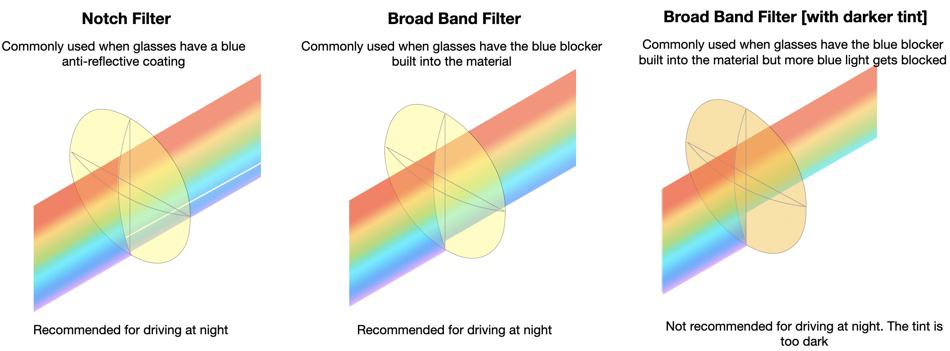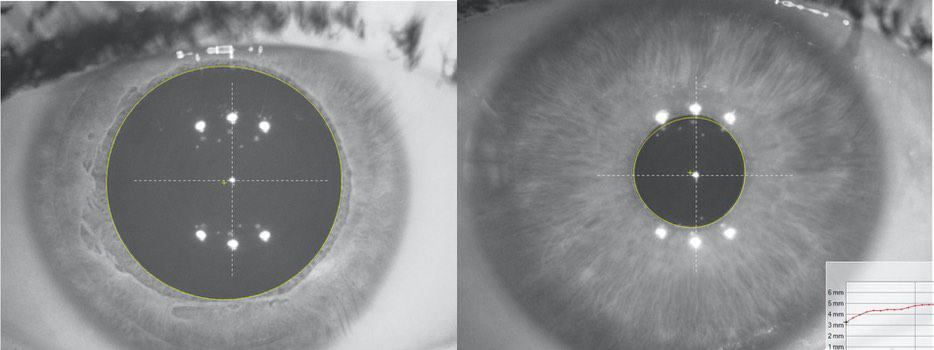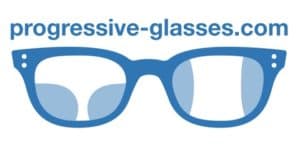Night driving glasses work by blocking some part of the light spectrum from entering your eye. Those Night driving glasses oftentimes come with a more or less dominant yellow tint. The more dominant the tint will be the less stressful headlights facing you could become.
Studies do show yellow-lens night-driving glasses did not appear to improve pedestrian detection at night. But in some cases, they slightly reduce the glare of other headlights. But this is also not even true for every person.
For example, in our shop, we ran a little test after sunset and met with five customers. They were all interested in reducing the glare from other headlights when driving at night. We tried different blue-blocking lenses. Some of them work blocking the blue light with a coating.
Those are typically the ones that have a certain glare on the lens surface and they block the least amount of blue light entering your eyes by using a notch filter technology. Only a tiny amount of blue light gets blocked.
The other ones have the blue blockers right built into the material which work with a more broadband filter technology in the material and the more intense the material is tinted the broader the light spectrum becomes that is blocked.

But in most cases what really makes the difference is a slightly changed prescription optimized for driving at night. At night the pupils are wider open and at daytime, the pupils get smaller. In front of the pupil is the cornea. And the cornea does not have the same lens everywhere. The radii change. Usually, the more you analyze the periphery the flatter it gets.
This produces the need for a slightly changed prescription. Even a change as little as -0.25D can make a difference so the wearer experiences less glare at night. In the following paragraphs, you will learn more about how the measurements need to be set up so you know if you actually need night-driving glasses with a changed prescription.
How Can I Improve My Night Vision for Driving?
The order to improve your vision at night the optician first needs to look at your eyes with a slit lamp which is a special microscope. In addition to that he or she can see if one of the following problems occurs:
- Bad tearfilm (inconsistent lubrication)
- Deposits on the contact lens surface
Both distort the light rays entering your eye. With a pupil which is more open at night more distortion happens. THe way to go here to improve your night vision for driving would be your contact lens material should be changed to another one which accumulates less desposits.
In regards to the the bad tearfilm your optician has several methods to improve it. Some of them include eyedrops or sprays while others include warm warm compresses for dry eyes and eye lid massages.
After the lubrication of your eyes got checked the optician or opthalmologist will now have a closer look at the shapes of your corneas. He or she does this with a topographer or scheimpflug technology. Basically what this unveils is the power distribution of your cornea. While some people have very minimal changes when it comes to the power distribution of the surface of the cornea others have a lot of variation.
This variation of power distribuiton in combiantion with a more or less dialetd pupil can produce the need for a changed prescription at night to improve vision. In complete darkness, myopic changes of the order of 1 dioptre are typical in young adults.

When the power distribution happens to be regular night driving glasses would work just fine. When the power distribution happen to be irregular specialty contact lenses would be needed to correct the irregular refractive error.
The problem oftentimes are the measurements at your local optcian. Before the measurements can be done for night driving glasses your eyes need to accomodate to a very dark envirnment. This oftentimes needs 15 minutes of waiting in a dark room before the eye care professional can begin to measure.
That is seldom the case. In addition to the waiting time the eye test chart needs to be presented in inverse mode. This means the background is pitch black and the characters you need to see are white. If the measurements were done as desribed you can get a second pair of glasses that are solely made for night driving. (The 15 minutes of waiting in the dark room is not needed when contact lenses are needed due to an irregular cornea.)
In most cases tthe procedure is not necassary. But in seldom cases it can be very valuable. A word of caution. You can not expect those night driving glasses to be perfect all the time. When you drive your pupils accomodate constantly to the envirnment. In the pictures above you saw the very wide open as well as the less open pupil. The diameter can be everything inbetween too. Which makes everything a bit more of a compromise.
Notice until now I did not speak about special coatings for driving at night which should improve your vision. Those comes next and while is the biggest part of the marketing itt will produce the smallest effects for you. Your optician needs to look at the above mentioned facts first before he or she speaks about drive safe glasses. More on that in the next paragraphs.
What Glasses Are Best for Driving at Night?
The best glasses for driving at night usually have the optimal prescription (which could ) and a tint or a coating with a blue light filter. Like the ones listed below:
- Zeiss drive safe
- Optovision Formula 2 Drive
While some people experience an improvement with those lenses druring night time others do not. Typically those glasses should reduce the glare of headlights and improve contrast.
My personal exerience with glasses made for driving at night was they did not really made a difference to me. But I also do not have problems driving at night.
Can Glasses Improve Night Driving?
Glasses can improve your vision at night while driving. But before you tested the glasses at night in your prescription you will not know. Before those glasses should be recommended your eyes should be checked in regards to irregularities, tear film quality and how well your eye play togehter.
A special coating for driving at night just plays a minor role in imroving your vision at night. So make sure you do not buy glasses for night driving just because the marketing says so. Go through the measurements and wait what your local opticians says after he or she examined your eyes.
